The liver is a vital organ that performs many essential functions, including filtering toxins from the blood, storing nutrients, and producing bile. Keeping your liver healthy is important for your overall health and well-being.
One way to support liver health is to eat a diet rich in fruits. Fruits are packed with nutrients and antioxidants that can help protect the liver from damage. Here are 10 fruits that are especially good for liver health:
Fruits that Improves Liver health
1. Citrus Fruits
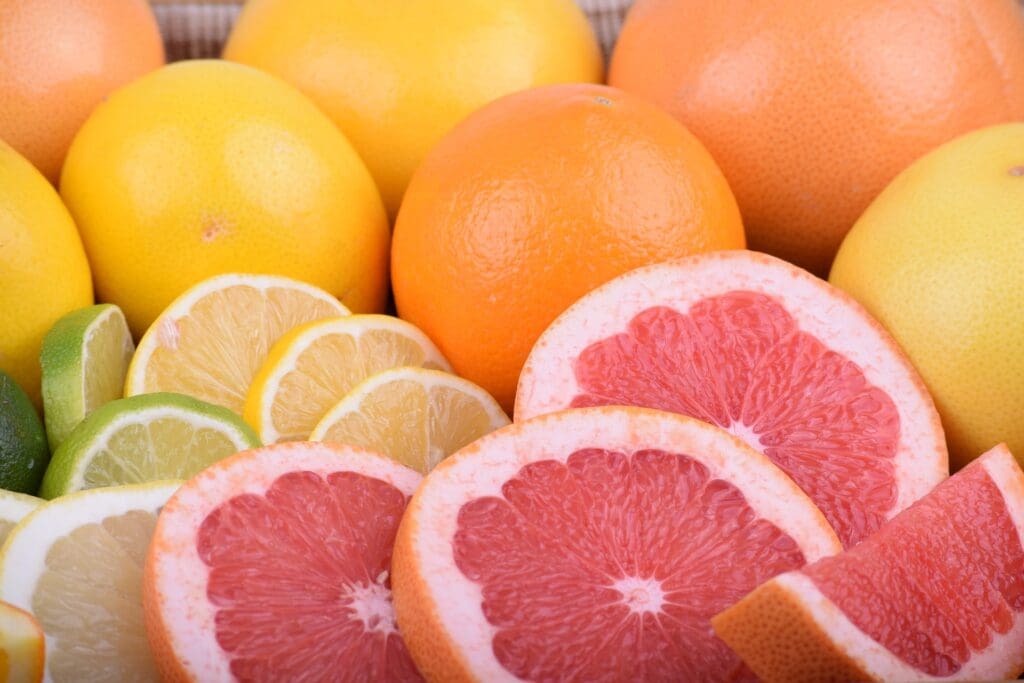
Citrus fruits, such as oranges, lemons, grapefruits, and limes, exert a positive impact on liver health due to their abundant vitamin C content and bioactive compounds.
Vitamin C plays a vital role in supporting the liver’s detoxification processes, neutralizing free radicals, and enhancing the production of glutathione.
Rich in flavonoids with anti-inflammatory properties, these fruits may alleviate liver inflammation and oxidative stress.
The high fibre content aids in digestion and regulates blood sugar levels, reducing the liver’s workload. Including a variety of citrus fruits in the diet provides a delicious and effective means to fortify liver health, harnessing a combination of antioxidants, anti-inflammatory agents, and fibre to maintain optimal liver function.
2. Berries

Berries, including strawberries, blueberries, and raspberries, exert a positive impact on liver health due to their rich array of antioxidants and bioactive compounds.
These fruits are particularly high in anthocyanins, flavonoids, and vitamin C, which collectively contribute to reducing oxidative stress and inflammation in the liver.
The powerful antioxidant properties of berries support the liver’s natural detoxification processes, helping to neutralize harmful free radicals.
Additionally, the dietary fibre found in berries aids in digestion and promotes the elimination of toxins from the body, supporting overall liver function.
Incorporating a variety of berries into the diet provides a flavourful and nutritious strategy to enhance liver health, harnessing the benefits of antioxidants and fibre for optimal well-being.
3. Apples

Apples have a positive impact on liver health, offering a combination of essential nutrients and bioactive compounds.
Rich in soluble fibre, particularly pectin, apples contribute to digestive health and assist in the elimination of toxins from the body, thereby easing the liver’s workload.
The antioxidants present in apples, including flavonoids and vitamin C, play a crucial role in reducing oxidative stress and inflammation in the liver.
Regular consumption of apples has been associated with improved liver function and a lowered risk of liver-related conditions. Adding apples to your diet provides a tasty and convenient way to support overall liver health, benefiting from their nutrient-rich profile and antioxidant properties
4. Avocados

Avocados significantly impact liver health with their nutrient-dense composition. Packed with monounsaturated fats, avocados promote cardiovascular health, indirectly benefiting the liver.
The fruit’s antioxidants, including vitamin E and glutathione precursors, help neutralize free radicals and protect liver cells from oxidative stress. Avocados also contain fiber, aiding digestion and facilitating the removal of toxins from the body
Known for their potential to reduce inflammation and improve overall liver function, avocados make a delicious and versatile addition to a balanced diet, contributing to the well-being of this vital organ
5. Bananas
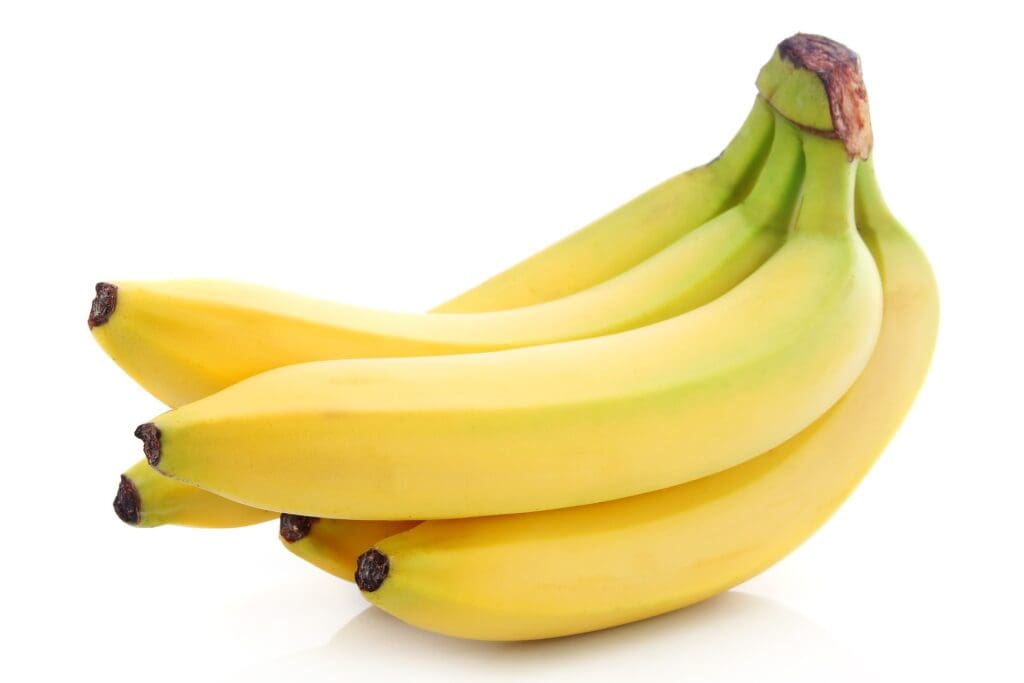
Bananas are a good source of potassium, which is essential for maintaining a healthy balance of electrolytes and fluids in the body.
This electrolyte balance is important for overall bodily function, including the proper functioning of the liver.
Additionally, bananas contain dietary fibre, which can aid in digestion and help regulate blood sugar levels.
Maintaining stable blood sugar levels is important for liver health, as large fluctuations can put stress on the liver
6. Dates
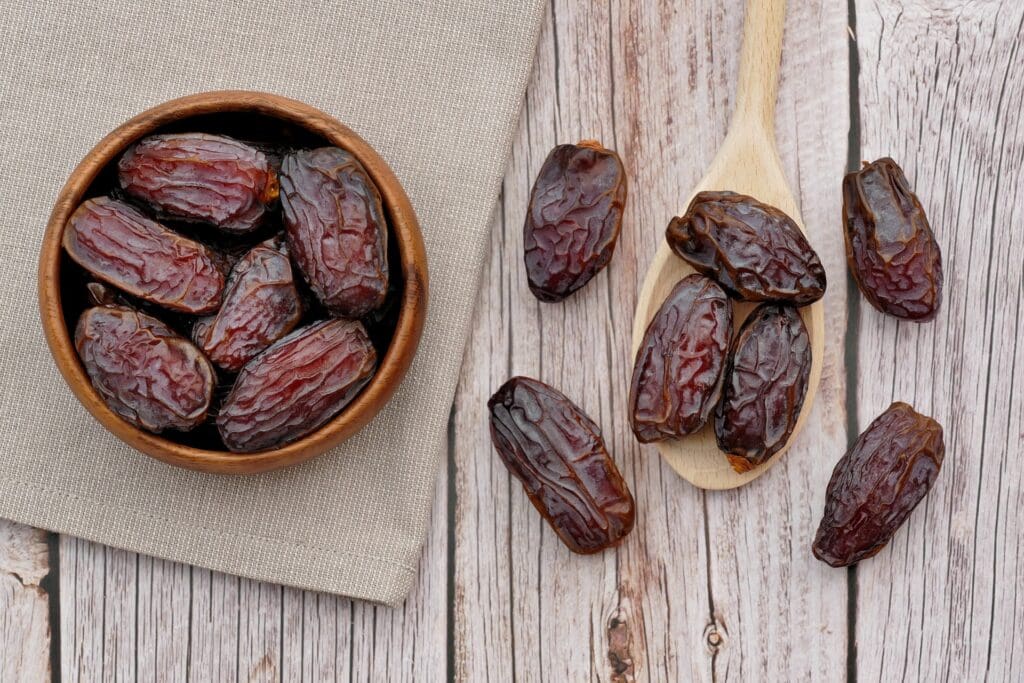
Dates offer potential benefits to liver health with their rich nutrient profile.
These naturally sweet fruits are high in fibre, promoting digestive health and aiding in the prevention of constipation, thereby indirectly supporting the liver’s detoxification processes.
Dates also contain essential minerals such as potassium, which helps regulate fluid balance in the body. While specific studies on dates and liver health may be limited, their nutritional content suggests they can be part of a well-rounded diet that contributes to overall well-being.
However, moderation is key due to their natural sugar content, and individuals with specific health conditions should consult with a healthcare professional for personalized dietary guidance.
7. Pomegranates
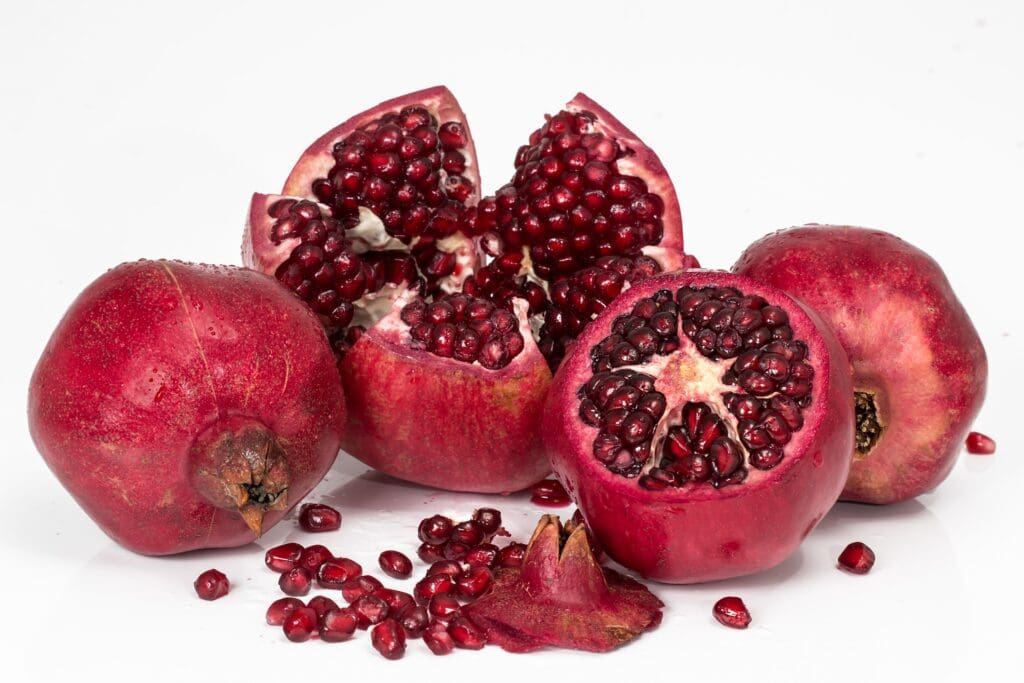
Pomegranates are a good source of antioxidants, which can help protect the liver from damage. They also contain ellagic acid, a compound that may help reduce inflammation.
8. Papayas
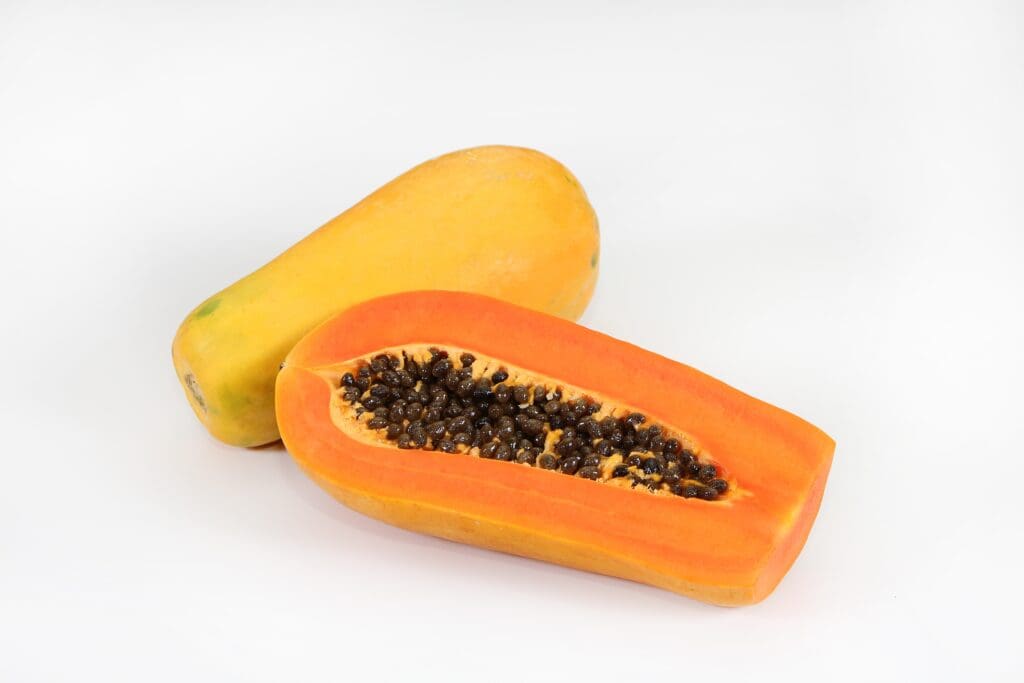
Papaya is a tropical fruit known for its digestive enzymes and high fibre content. It supports liver health by aiding in digestion and promoting the elimination of toxins from the body.
Papayas are a good source of vitamin C and antioxidants, which can help protect the liver from damage. They also contain papain, an enzyme that can help break down proteins and improve digestion.
9. Pineapples
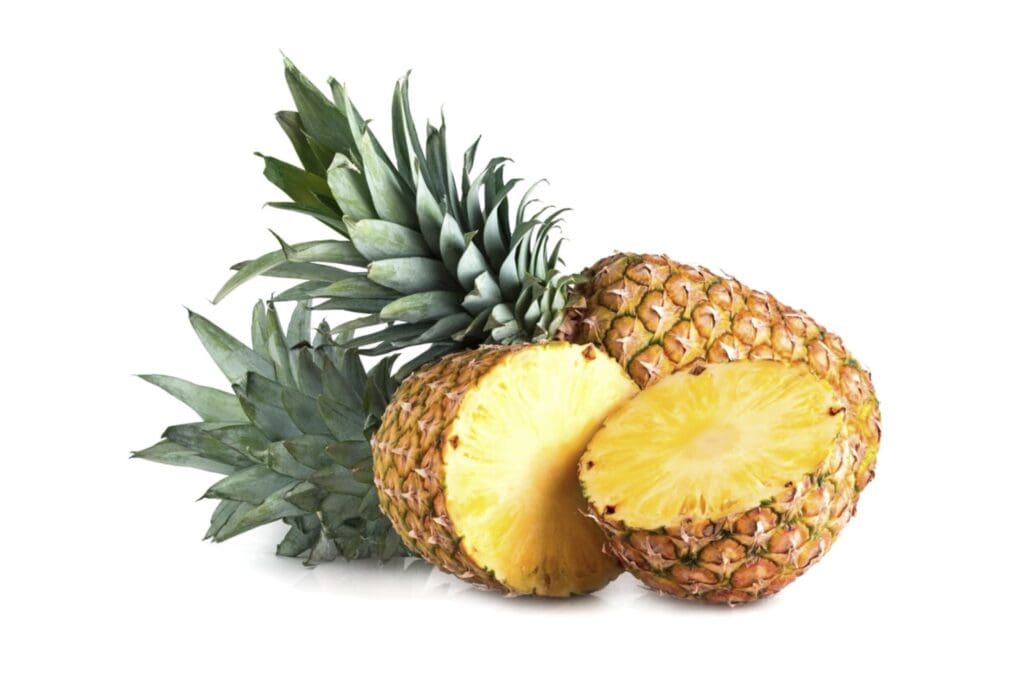
Pineapple is a valuable addition to fruits that promote liver health. Packed with bromelain, antioxidants, and vitamin C, it aids in reducing inflammation and supporting detoxification processes. The fruit’s fibre content contributes to digestive health, emphasizing its role in maintaining overall liver well-being.
10. Kiwis

Kiwi, with its vibrant green flesh and numerous health benefits, can positively impact liver health. Packed with vitamin C, kiwi serves as a potent antioxidant, supporting the liver’s detoxification processes and combating oxidative stress.
Additionally, the fruit’s dietary fibre content aids in digestion and promotes the elimination of toxins from the body, contributing to overall liver function.
While more research specific to kiwi and liver health is warranted, incorporating this nutrient-rich fruit into a balanced diet offers a delicious way to harness its potential benefits for the well-being of this vital organ.
In addition to eating these fruits, there are other things you can do to support liver health, such as:
Limit alcohol consumption: Drinking too much alcohol can damage the liver and lead to liver disease. Men should drink no more than two drinks per day, and women should drink no more than one drink per day
Avoid exposure to toxins: Exposure to toxins such as cleaning supplies, chemicals, and tobacco products can damage the liver. It is important to limit exposure to these toxins as much as possible.
Get vaccinated: Vaccines are available for hepatitis A and B, which are viral diseases that can damage the liver. Getting vaccinated can help protect against these diseases
Maintain a healthy weight: Being overweight or obese can increase the risk of non-alcoholic fatty liver disease (NAFLD), a condition that can lead to cirrhosis. Maintaining a healthy weight through diet and exercise can help reduce the risk of NAFLD
Practice safe sex: Hepatitis B and C can be transmitted through sexual contact. Practising safe sex can help reduce the risk of these diseases
If you are concerned about your liver health, talk to your doctor. They can test your liver function and make sure you are doing everything you can to keep your liver healthy.
Wash your hands frequently: Washing your hands frequently, especially after using the bathroom and before eating, can help reduce the risk of hepatitis A, a viral disease that can damage the liver.
Exercise regularly: Regular exercise can help improve liver function and reduce the risk of liver disease. Aim for at least 30 minutes of moderate exercise per day.
I hope this article has been helpful. If you have any questions, please feel free to leave a comment below.
Disclaimer: This blog post is for informational purposes only and is not intended to be a substitute for medical advice. Please consult with your doctor before making any changes to your diet or lifestyle.



